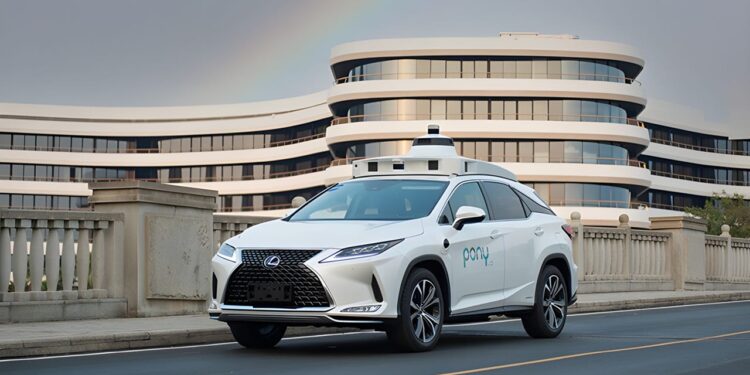Chinese autonomous vehicle company Pony AI has started testing self-driving cars on Qatar’s public roads, teaming up with the country’s biggest transport operator to bring robotaxis to the Middle East.
The company partnered with Mowasalat, known locally as Karwa, to deploy autonomous vehicles in Doha starting September 2025. Safety drivers sit behind the wheel during these early trials as the technology adapts to Qatar’s desert climate and busy streets.
Qatar Picks Proven World Cup Transport Partner
Mowasalat brings serious credentials to this robotaxi project. The state-owned company successfully moved millions of people during the FIFA World Cup Qatar 2022, operating 4,000 buses with 18,000 staff from 90 countries.
“Building on our success in managing world-class transport operations during the FIFA World Cup Qatar 2022, we are now integrating advanced autonomous driving technologies,” said Ahmed Hassan Al-Obaidly, Mowasalat’s CEO.
The company deployed 900 electric buses during the tournament, showing Qatar can handle massive transport operations. Now they’re applying that experience to autonomous vehicles.
Chinese Tech Company Expands Middle East Footprint
Pony AI already operates in Dubai and recently announced plans to deploy 1,000 robotaxis across the Middle East by 2028. The Nasdaq-listed company has driven over 32 million kilometers in tests worldwide.
The firm uses what it calls “Virtual Driver technology” that works across different vehicle types. This approach helps reduce costs compared to building custom cars from scratch.
Dr. James Peng, Pony AI’s Chairman and CEO, sees Qatar as a unique testing ground. “Qatar presents a unique environment for autonomous driving deployment, and Mowasalat’s deep local knowledge makes it an ideal partner,” he said.
National Vision 2030 Drives Smart Transport Push
Qatar’s robotaxi trials connect directly to the country’s National Vision 2030, which seeks to build a knowledge-based economy and reduce dependence on oil revenues.
The plan calls for fully electrifying public transport by 2030 and embracing connected, autonomous vehicles. Qatar wants to position itself as a smart city leader in the Gulf region.
Smart city projects in Lusail and Msheireb already use IoT systems to manage energy efficiently. Adding autonomous vehicles fits this broader digital transformation strategy.
Robotaxi Business Model Still Developing
While the technology advances, the business case for robotaxis remains unclear. Companies like Waymo and Cruise have struggled to turn profits despite billions in investment.
Pony AI hopes its vehicle-agnostic approach will reduce costs. Instead of building custom cars, the company installs its driving system in existing vehicles from different manufacturers.
The Middle East offers advantages for robotaxi deployment:
- Government support and funding
- Less complex regulatory environment
- Willingness to try new technologies
- Hot climate that makes air-conditioned transport appealing
Singapore Expansion Shows Global Ambitions
Just weeks after the Qatar announcement, Pony AI entered Singapore, partnering with transport company ComfortDelGro.
This expansion shows the company’s strategy of building regional partnerships rather than trying to go it alone in new markets. Local partners provide regulatory knowledge, government connections, and operational expertise.
Pony AI now operates or tests vehicles in China, UAE, Qatar, Singapore, and previously in the United States. This geographic spread helps reduce dependence on any single market.
Road Ahead for Qatar’s Autonomous Future
The current trials is just the first step toward a commercial robotaxi service in Qatar. The timeline for removing safety drivers and launching paid rides remains unclear.
Success will depend on several factors:
- Technology proving reliable in Qatar’s harsh climate
- Regulatory approval for fully autonomous operation
- Public acceptance of driverless vehicles
- Economic viability of the service
Qatar’s small size and controlled environment could help autonomous vehicles succeed faster than in larger, more complex cities. The country has a track record of adopting new technologies when they serve strategic goals.
As Gulf nations compete to lead the autonomous vehicle revolution, Qatar’s partnership with Pony AI positions the country as a serious player in the future of transportation.














